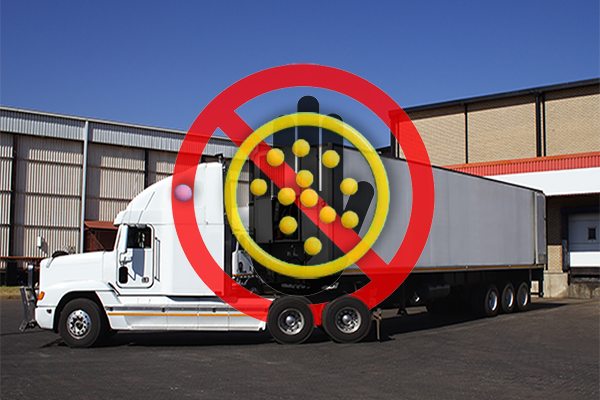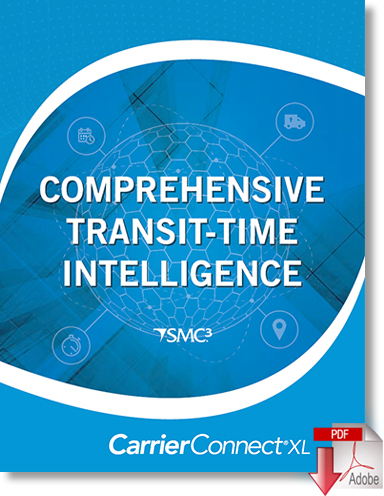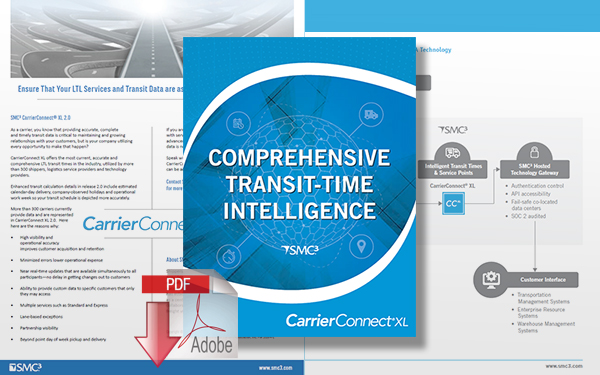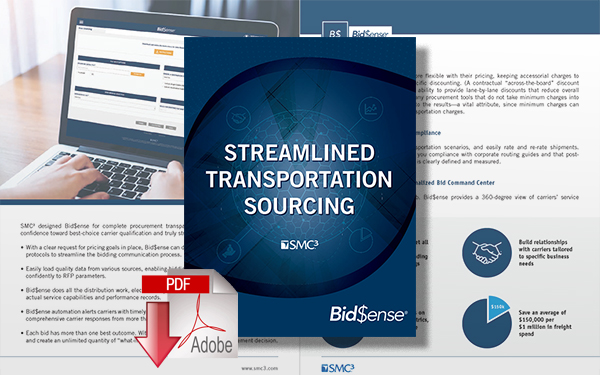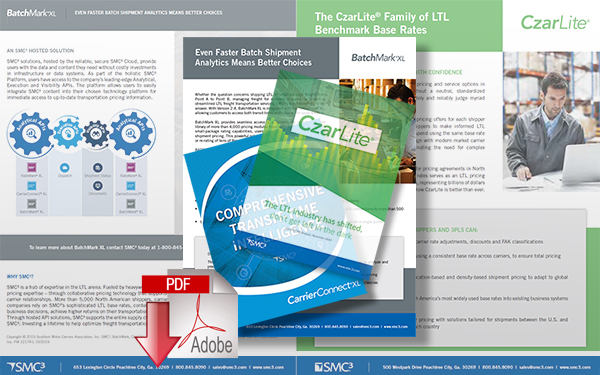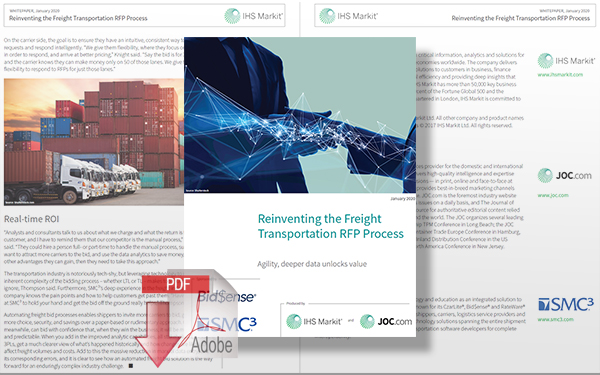What are Freight Embargoes and Why Do Carriers Set Them?

While there are many reasons why a carrier might set a freight embargo, they’re often necessary for carriers to comply with legal restrictions, overcome logistical challenges, and balance capacity during times of peak demand.
Freight Embargoes
Embargoes are common in less than truckload (LTL) shipping. While there are many reasons why a carrier might set a freight embargo, they’re often necessary for carriers to comply with legal restrictions, overcome logistical challenges, and balance capacity during times of peak demand.
LTL temporary service outages are particularly relevant in today’s carrier market when demand for freight is at record highs and resources are still lean for many carriers. This blog explains the purpose of LTL freight embargoes, who decides when they go into effect and why embargoes can actually help make the supply chain work more smoothly for shippers and carriers alike.
What Is An LTL Freight Embargo?
A freight embargo is when a carrier stops accepting loads from shippers. LTL embargoes can be set for a certain timeframe, geographic region, or even specific freight characteristics (i.e. maximum weight or shipment size) according to the carrier’s decision.
Who Decides When Freight Gets Embargoed?
Embargoes are often set by carriers themselves. They can also be set by state and federal governments, but this is less common in American domestic freight.
Why Do Carriers Set Freight Embargoes?
An LTL carrier might set an embargo on freight during peak shipping season or in case of bad weather conditions, natural disasters, or limited access to certain locations. An embargo can also help carriers maintain better control over capacity and lessen strain by selectively refusing freight for a set time.
With SMC³ CarrierConnect® XL, carriers can manage embargoes and custom messaging for shippers at the terminal, city, or postal code level, allowing carriers to adjust pickup dates and calculate estimated delivery dates based on optional embargo data.
How Long Do Freight Embargoes Last?
LTL carrier embargoes can last days, weeks, or even months depending on the carrier’s decision. For this reason, it is particularly important for carriers to have a solution that helps them communicate operational capabilities.
What Do LTL Embargoes Mean For Shippers?
If a carrier sets an embargo that affects a shipper’s freight, the shipper will either have to wait until the carrier’s embargo lifts or, more likely, they’ll look for another carrier to move their freight in the meantime. Visibility between carriers and shippers remains crucial so that all parties can reallocate resources for higher-value activities.
Additionally, proactive alerts direct from the carrier or via TMS help avoid the challenges that came with the traditional, manual approach of relaying information via phone calls or broad email distributions.
Why Freight Embargoes Aren’t Always a Bad Thing
An embargo means a carrier stops accepting freight, which obviously means they lose out on some amount of revenue from turning down those loads – so why would they turn down the opportunity to make more money? Embargoes might seem counterintuitive for carriers, but they’re not arbitrary.
Carriers often set embargoes on LTL freight to ease the strain on their capacity. For example, when natural disasters disrupt the supply chain, carriers often experience a spike in demand as shippers look for new ways to get their freight where it needs to go. If a carrier knows it doesn’t have the capacity to deliver that freight on time, the carrier might set an embargo on the freight affected by that natural disaster.
Carriers might also set a temporary service outage even when there’s no immediate disaster or a sudden spike in demand. Sometimes, they just get too busy to accept certain types of freight or freight from certain locations. Setting up a transit service alert for a certain length of time helps them catch up so they can predict their business, plan out capacity and better serve their customer base more consistently.
Even if accepting that freight would mean additional revenue, carriers would be adding strain on their capacity, possibly resulting in late deliveries. Many carriers decide that the payout isn’t worth the decreased performance and increased stress on their drivers and equipment – hence, the embargoes.
Adding Transit Service Alert Details To CarrierConnectXL from SMC³
When setting service interruptions, communication is important. Shippers and carriers alike benefit from clear, early, consistent communication of information that affects their freight.
Carriers can communicate embargoes to shippers through CarrierConnect® XL with custom messaging that explains the terms and reasons for the embargo and offer alternatives, helping maintain the symbiotic carrier/shipper relationship during an embargo.
Implementing an embargo is a very easy process for carriers via a simple data file upload, and if received before 2:00 pm ET, the embargo update will be reflected in CarrierConnect® XL the same day. Embargo messaging can also be viewed by any customer with a CarrierConnect® XL license via SMC³’s online CCXLWebApp.
For more information on the SMC³ CarrierConnect® XL solution for carriers, click here.
Related Papers
Comprehensive Transit-Time Intelligence - SMC3’s CarrierConnect XL Platform
When integrated with the leading transportation management systems, CarrierConnect XL adds unparalleled transit and service information for greater transportation efficiency. Download Now!
Bid$ense: Streamlined Transportation Sourcing
This paper details how using Bid$ense leverages SMC³’s lifetime of transportation purchasing knowledge, allowing customers to incorporate pricing, claims ratios, on-time performance, and transit times into their LTL bidding analysis. Download Now!
Analyzing and Predicting Freight Transportation Costs
In these 3 resources, BatchMark XL, CarrierConnect XL, and CzarLite, we detail how to ensure accurate freight billing across every carrier agreement, uncover potential freight bill invoice errors, and assist with price negotiation and planning. Download Now!
Reinventing the Freight Transportation RFP Process
In this white paper, we describe how using a tech-enabled freight bid system allows for more freight providers to be considered, greatly improving choice and the ability to tailor your service around more than just price. Download Now!
More SMC³ Resources
Related Article: How Third-Party Logistics Providers Utilize Technology Enhancements to Simplify LTL Freight Shipping
Article Topics
SMC3 News & Resources
SMC3 Mercury Gate Case Study - Improving Workflows and Enhancing Efficiency with LTL APIs SMC3: Is Technology a Competitive Advantage in the Modern Supply Chain Industry? Armada’s Prather examines the disconnect between the freight economy and the macro economy at SMC3 JumpStart 2024 SMC³’s Solution to the Logistics Industries Talent Problem 2024 Transportation Rate Outlook: More of the same? Refining LTL API Consumption for Optimal Efficiency and Enhanced Services Regulations Impacting Less-than-Truckload More SMC3Latest in Transportation
A Look at Baltimore’s Key Bridge Collapse—One Month Later Baltimore Continues Bridge Recovery With Opening of New Channel How Shippers Can Prep for Hurricane Season UPS Struggles in First Quarter With Steep Earnings Decline FedEx Announces Plans to Shut Down Four Facilities The Two Most Important Factors in Last-Mile Delivery Most Companies Unprepared For Supply Chain Emergency More Transportation